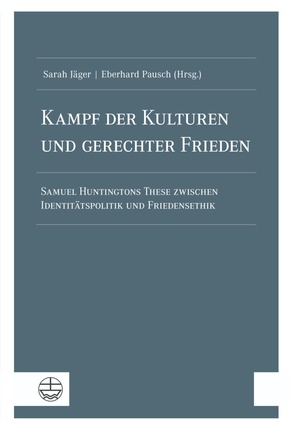Kampf der Kulturen und gerechter Frieden - Samuel Huntingtons These zwischen Identitätspolitik und Friedensethik
| Verlag | Evangelische Verlagsanstalt |
| Auflage | 2022 |
| Seiten | 164 |
| Format | 15,6 x 1,2 x 23,6 cm |
| Großformatiges Paperback. Klappenbroschur | |
| Gewicht | 281 g |
| ISBN-10 | 3374072178 |
| ISBN-13 | 9783374072170 |
| Bestell-Nr | 37407217A |
1996 erschien Samuel P. Huntingtons Buch »Der Kampf der Kulturen«. Im Deutschen sind die Begriffe »Kultur« und »Zivilisation« fast deckungsgleich. Huntington vertritt vor diesem Hintergrund drei Hauptthesen: (1) Kultur zählt. (2) Jede Kultur hat eine eigene, unverwechselbare Identität. (3) Wenn Kulturen aufeinanderprallen, ist der Friede gefährdet. Aber gibt es wirklich die je eigenen, unverwechselbaren Identitäten von Kulturen? Das wäre eine Form von »Essentialismus«. Im Gegenteil scheint die Welt ein Gewebe von inter- und transkulturellen Beziehungen zu sein. Daher lässt sich Frieden jedenfalls dann gewinnen oder bewahren, wenn diese Beziehungen auf der Grundlage von multilateralen Gesprächen (Dialogen oder Polylogen) gepflegt werden.Mit Beiträger von Ulrike Auga, Lukas Bormann, Ursula Büttner, Christopher Daase, Sarah Jäger, Eberhard Pausch, Wolfgang Prawitz, Eva Senghaas-Knobloch, Sylvie Thonak, Annette Weidhas und Simone Wisotzki.[Clash of Civilizations and Just Peace]In 1996 Samuel P. Huntington published his controversial book »The Clash of Civilizations«. In German, the word »civilization« is almost synonymous with »culture«. On this basis, Huntington submits at least three main theses: (1) »Culture counts«, (2) »Cultures are based on different identities«, (3) »In the future peace is threatened by conflicts between cultures«. One cannot deny that »culture counts« yet it is not obvious that cultures consist of totally different identities which do not overlap one another. Such a concept would be a form of »essentialism«. On the contrary, cultures only exist in form of inter- and transcultural relations. To win or to keep peace it is necessary, therefore, to strengthen these relations by dialogues and polylogues.

